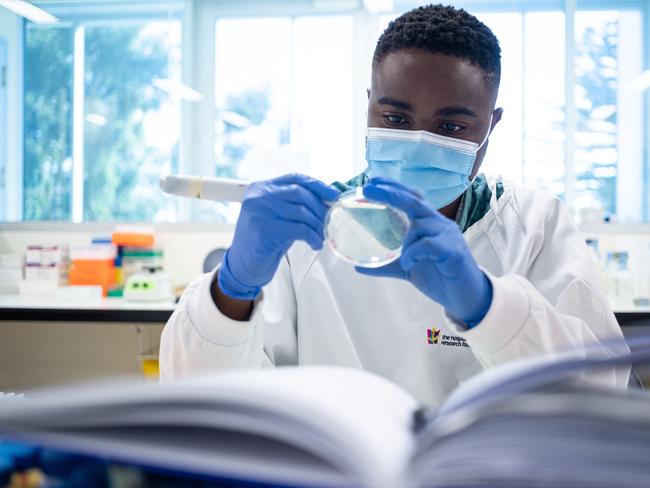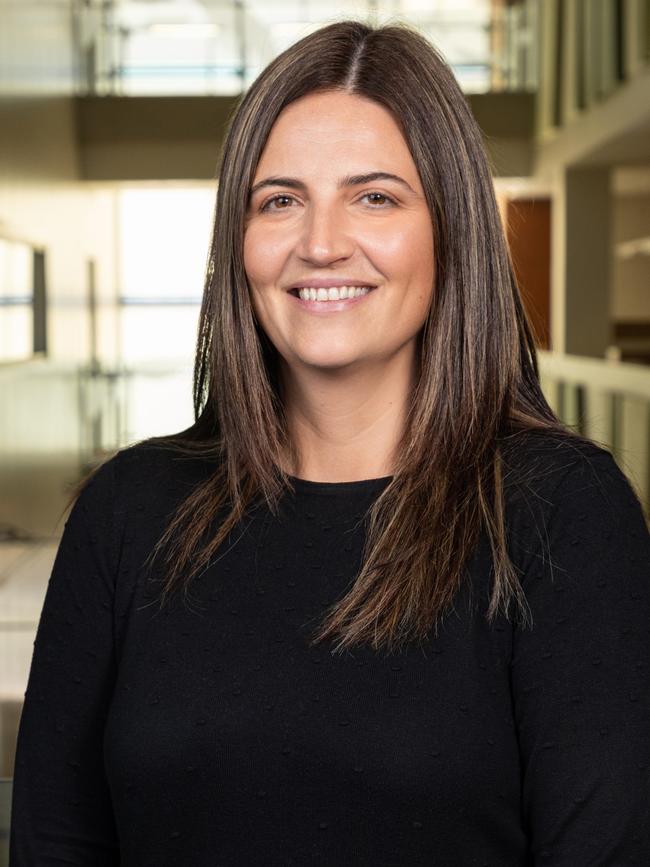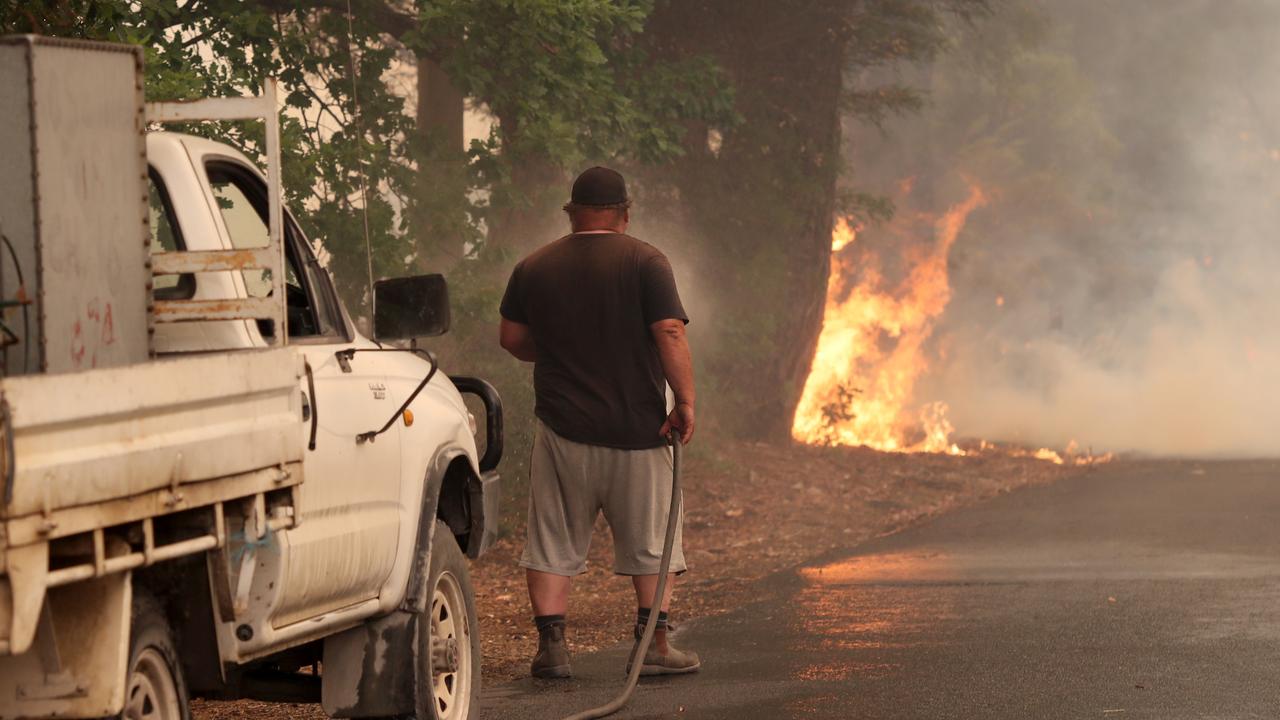SA’s own needle-free Covid vaccine to start human trials
It’s an all-new Covid vaccination, made here in SA that can fight all variants. And that’s not even the best part.
Coronavirus
Don't miss out on the headlines from Coronavirus. Followed categories will be added to My News.
A new Covid-19 vaccine designed and manufactured in Adelaide starts human trials this week with potential to become a major export earner – and it doesn’t require a needle injection.
The all-South Australian researched, designed and manufactured vaccine would also ensure sovereign capability in the event of new variants rather than relying on limited supplies of imported vaccines.
The vaccine specifically targets the highly-transmissible Omicron variant and its makers say it easily can be adapted to fight future variants.
It also can be stored for up to five years, shipped at room temperature and be manufactured at large scale in existing Adelaide facilities.
The DNA-based vaccine has been designed by University of Adelaide researchers and manufactured at the hi-tech BioCina facility at Thebarton which already has approval as an advanced pharmaceutical manufacturing facility from US, Canadian and European authorities.
It is being trialled at Royal Adelaide Hospital in partnership with PARC Clinical Services and SA Pathology, with research undertaken at the University of Adelaide and Basil Hetzel Institute for Translational Health Research at the Queen Elizabeth Hospital, supported by the Hospital Research Foundation Group.
This is one of the few vaccines worldwide targeting the Omicron variant – Pfizer, AstraZeneca, Moderna and Novavax vaccines target the original strain of the virus.

Its makers say DNA vaccines require simple engineering design modifications that can be made quickly to adapt to future variants, while MRNA-based vaccines are more complicated to make.
Lead investigator Associate Professor Branka Grubor-Bauk, Head of Viral Immunology at the University of Adelaide’s Adelaide Medical School, is calling for volunteers aged over 18 who have been triple vaccinated more than three months ago and have not had Covid.
The trial is seeking 100 people including over-60s – the group most vulnerable to Covid.
Participants will be randomly split into two groups, one to receive the new Omicron vaccine as a booster and the other a Pfizer booster to act as a control. They will be monitored for three months and need to visit the RAH four times for blood tests.
“We need to continue developing ‘next generation’ Covid-19 vaccines because the virus will continue to mutate, particularly in countries with low vaccination rates and high rates of uncontrolled transmission,” Prof Grubor-Bauk said.
“As we live with Covid-19, we still have vulnerable populations at risk of severe disease. It is vitally important to evaluate variant-specific booster vaccines.”

The vaccine will be administered using a needle-free device from American company Pharmajet. The device delivers a micro-jet spray of liquid, which goes under the skin and is said to be painless.
Professor Eric Gowans, National Health and Medical Research Council senior research Fellow at the Adelaide Medical School who is co-leading the trial, said another advantage of this vaccine is its stability.
“It can be shipped at room temperature, stored for five years and manufactured in existing facilities en-masse,” he said.
Adelaide University’s Deputy Vice Chancellor and Vice-President (Research), Professor Anton Middelberg praised the collaboration between researchers and BioCina.
“Working with our industry partners, we aim to build a new expert capability that will help contain the spread of the Omicron Covid-19 variant, and other variants that may evolve in the future,” he said.
“The ability to develop and manufacture the vaccine in existing facilities here in South Australia ensures we can secure our vaccine supply to respond to Covid-19 or any other future pathogen threats.”
Principal clinical investigator, immunologist and immunopathologist with SA Pathology and the RAH, Associate Professor Pravin Hissaria, said the development of highly effective vaccines had been the most effective strategy in containing Covid.
“It is important we continue to innovate and adapt to the evolving viral strains and deliver precise and effective vaccines,” he said.
The Hospital Research Foundation Group has been funding the team’s vaccine development for the past 10 years helping its ability to switch quickly to new viruses and variants as has happened with the arrival of Covid.
Foundation chief executive Paul Flynn said: “It is a credit to South Australia that this vaccine has advanced so quickly and with such efficient technology.
“This trial will ultimately determine if the vaccine is safe, but I encourage South Australians interested in participating to put their trust in a respected, safe, peer-reviewed team like the University of Adelaide’s which has a proven track record in DNA vaccines.”
When this initial trial is complete researchers will assess the results including possible side effects and optimum dosage before deciding whether to proceed to a much larger clinical trial, under strict ethics rules. If all goes well this could be underway by the end of the year, and if the larger trial proves successful BioCina may be in a position to apply to the Therapeutic Goods Administration and overseas authorities for approval to market the vaccine next year.





